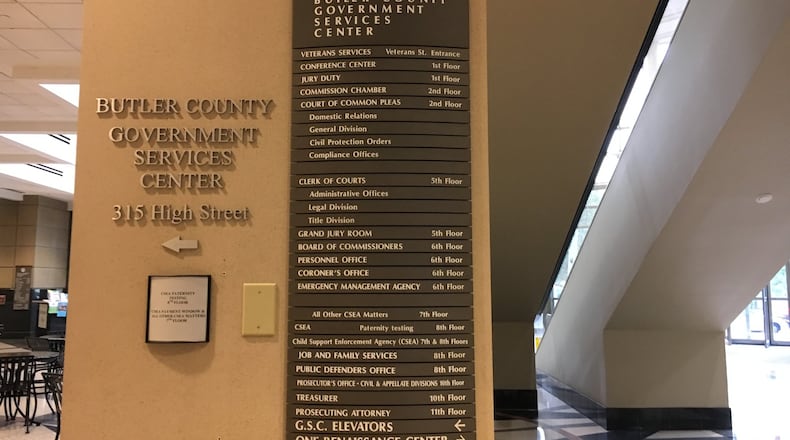RELATED: Pay-for-performance is paying off, leaders say
“I want to be very clear and frank and open with our office holders because they have gone the distance with us and helped us get here,” Dixon said. “The pay for performance that we put in place had such a positive impact on the budget, I don’t want to leave our employees and office holders thinking that the pay-for-performance won’t be there.”
The biggest burden on the budget is the loss of $3.1 million in Medicaid Managed Care sales tax. The state budget included a fix for the loss but Gov. John Kasich vetoed it. The House members have overridden the veto but now the Senate must approve the override.
Kasich penciled in a lump-sum payment of $2.1 million to bridge the gap for the county in his version of the budget, but that money can’t be used for operations.
Keels said she isn’t counting on the money.
MORE: Butler County out $3.1 million in sales tax
“We are still anticipating we are not going to be made whole,” Keels said. “Even if we are made whole my understanding of the legislation is that wouldn’t go into effect July 1, ‘18. I’ve been unable to get the details of what means, will that be retroactive for the entire year. How much will I collect in ‘18.”
When Keels presented the initial tax budget to the commissioners in June she had received $99.4 million in general fund expense requests but revenues are only expected to reach $96 million.
To balance the budget — no reserves will be used to cover expenses in the general fund — Keels said the salary reductions were made where possible, they reduced the capital budget, cut the rainy day fund by $1 million — it was set at $2 million — and made some other adjustments.
There are some big ticket items that are still up for discussion — and not in the tax budget — during budget hearings in October. The biggest is new voting machines. The Board of Elections needs about $4 million up front to purchase new machines but will get reimbursed half by the state. There are also repairs to the Care Facility than can’t be covered by Community Development Block Grant money and other infrastructure improvements.
RELATED: Butler County may get new voting machines
Keels warned that the budgeting process this year — the tax budget is the starting point — is going to be difficult.
“For the most part that growth (in revenues) we’ve experienced year to year is going to be absorbed by the (sales tax) loss,” she said. “It’s imperative that our departments continue to work with us not only this year but for next year and understand we really need to have flat budgets.”
Total general fund revenues are anticipated to get an $800,000 boost from investment income, almost $300,000 in property transfer taxes and other increases, for a total of about $1.45 million in new general fund revenue.
Keels said there are still many variables to consider, including unknown future actions, like unfunded mandates from the state and federal governments, but she said she is conservatively estimating the county will have a $33.8 million cash balance in the general fund at the end of 2018. That figure once stood at around $10 million in 2010.
Commissioner T. C. Rogers echoed Keels caution to fellow office holders and department heads.
“I believe that this is going to be probably the most difficult budget we’ve faced. There are conversations that we have this much (more) in reserves than we had before. We’ve got the reserve level which we were supposed to have as a county but actually we’re not quite there yet for an operation of this size,” Rogers said. “We’re just trying to keep the ship afloat.”
About the Author
